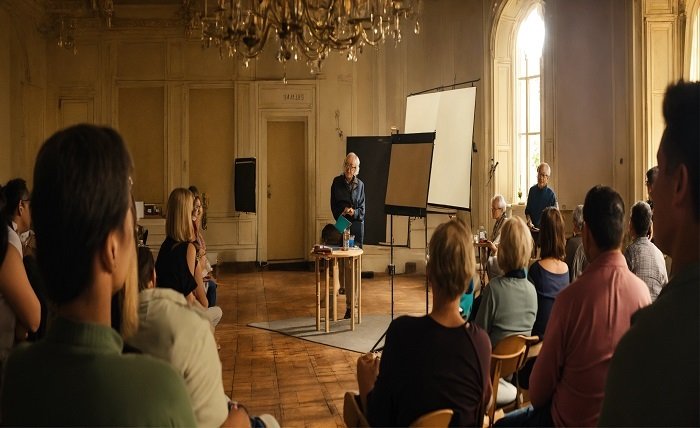Canon Event and Its Impact on Storytelling

A “Canon Event” refers to a key moment or development in a story or fictional universe that is considered an essential part of the official timeline or continuity. These events are crucial because they shape the destiny of the characters involved and often affect the broader narrative. In literature, comics, films, and television, canon events hold a significant role in storytelling, as they provide structure and guide the direction of a story. By understanding what constitutes a “Canon Event,” we can better appreciate how it influences the progression of a narrative and the characters within it.
The Definition of a “Canon Event”
At its core, a “canon event” is any event that is accepted as official and essential within a specific fictional universe. It is often a pivotal moment that cannot be altered without affecting the continuity of the entire story. For instance, in comic book lore, Spider-Man’s origin story, where Peter Parker is bitten by a radioactive spider, is a “Canon Event.” In cinematic universes, key moments like Luke Skywalker discovering the truth about his parentage in Star Wars are also considered “Canon Events.” These events not only drive the plot but also define the character’s motivations and future actions.
“Canon Event” vs. Alternate Timelines
One important distinction to make is between “Canon Events” and events that happen in alternate timelines or universes. While a “Canon Event” forms the backbone of the main storyline, alternate timelines or universes often explore what would happen if certain events had played out differently. For example, in the Spider-Verse movies, multiple versions of Spider-Man exist, each with its own timeline and distinct events. The key takeaway is that while these alternate timelines offer different narratives, the “Canon Event” remains a fixed point in the primary storyline.
The Significance of “Canon Events” in Character Development
“Canon Events” are essential to character development. These events are often turning points that force characters to evolve or face critical decisions. For example, the death of Uncle Ben in Spider-Man is a “Canon Event” that plays a pivotal role in shaping Peter Parker’s personality, motivations, and actions as Spider-Man. The loss propels him to understand the great responsibility that comes with his powers. Such moments add depth and realism to characters, providing audiences with a clearer understanding of their psychological growth.
The Emotional Weight of “Canon Events”
A “Canon Event” often carries significant emotional weight. It is not just about advancing the plot; it also affects the characters emotionally and psychologically. These events create a lasting impact on the characters, influencing their decisions and shaping their beliefs. Take, for example, the “Canon Event” in The Dark Knight where Harvey Dent’s transformation into Two-Face is set in motion by the tragic loss of his loved ones. This event not only serves as a narrative turning point but also explores themes of loss, justice, and corruption. “Canon Events” thus provide a profound emotional foundation for the narrative.
How “Canon Events” Impact the Narrative Structure
The role of a “Canon Event” extends beyond the character level—it influences the entire structure of the narrative. A well-executed “Canon Event” sets the stage for the rest of the story. For instance, in Harry Potter and the Sorcerer’s Stone, Harry’s discovery that he is a wizard is a crucial “Canon Event” that sets the entire series in motion. Without this revelation, Harry’s journey and growth as a wizard, as well as the ultimate defeat of Voldemort, would not be possible. “Canon Events” are the pillars upon which the narrative stands, guiding the direction of the plot and ensuring cohesion in the story arc.
The Role of “Canon Events” in World-Building
“Canon Events” also play a significant role in world-building. They provide context for the universe in which the story unfolds, helping to explain the rules, history, and social dynamics of the fictional world. In the case of The Lord of the Rings, the destruction of the One Ring is a “Canon Event” that not only affects the main characters but also the fate of Middle-earth itself. These events often have broader implications that influence the politics, cultures, and even the geography of the world within the story.
The Evolution of “Canon Events” in Modern Media
As storytelling has evolved, the concept of “Canon Events” has expanded. In modern media, especially in franchises with interconnected universes like the Marvel Cinematic Universe (MCU) or the Spider-Man films, “Canon Events” often intersect and intertwine across multiple storylines. This approach allows creators to build expansive, layered narratives where individual events resonate across different characters and plots. The way “Canon Events” are woven into these broader universes has redefined what it means for an event to be “canon.”
Exploring the Impact of “Canon Events” on Fandom
Fandoms often have a unique relationship with “Canon Events.” Fans become deeply invested in these events, often speculating, analyzing, and theorizing about how they will unfold. These events create shared touchpoints for the fan community, where individuals can discuss their interpretations and reactions. For example, the death of a beloved character like Tony Stark in Avengers: Endgame is a “Canon Event” that sparked an immense emotional response from fans worldwide. Such events bring fans together, as they celebrate or mourn the progression of a narrative that they collectively care about.
The Debate: Should “Canon Events” Ever Be Altered?
In some instances, there’s been a debate about whether “Canon Events” should be altered or retconned. Some fans believe that these events are sacrosanct, while others feel that changing them could offer new creative opportunities. A notable example of this debate can be seen in the X-Men comics, where certain events, such as the death of key characters or alternate realities, have been retconned to explore new possibilities. While “Canon Events” often serve as the backbone of a storyline, the flexibility to adapt or reinterpret them can breathe new life into a narrative.
Conclusion
In conclusion, “Canon Events” are integral to the fabric of storytelling. They provide structure, emotional depth, and narrative direction, ensuring that the story remains cohesive and engaging. Whether it’s a character-defining moment, a critical plot twist, or an event that shapes the world around it, these moments anchor the narrative. As storytelling evolves across various mediums, “Canon Events” will continue to serve as the bedrock upon which stories are built, ensuring that both characters and audiences remain deeply invested in the journey.
FAQs
- What is the difference between a “Canon Event” and a non-canon event?
A “Canon Event” is an official and essential event in a storyline, while non-canon events are alternate or unofficial developments that don’t affect the main continuity. - Can “Canon Events” be changed or retconned?
While “Canon Events” are typically fixed, some universes, especially in comics and films, allow for retcons or alternate timelines where key events are altered. - Why are “Canon Events” important for character development?
“Canon Events” serve as pivotal moments that shape a character’s personality, motivations, and future actions, often driving their growth and evolution. - How do “Canon Events” influence the fan community?
“Canon Events” provide shared moments for fans to bond over, leading to discussions, theories, and emotional responses that strengthen the fanbase. - What is an example of a “Canon Event” in popular culture?
An example of a “Canon Event” is Spider-Man’s origin story, where Peter Parker is bitten by a radioactive spider, leading to his transformation into the superhero Spider-Man.




